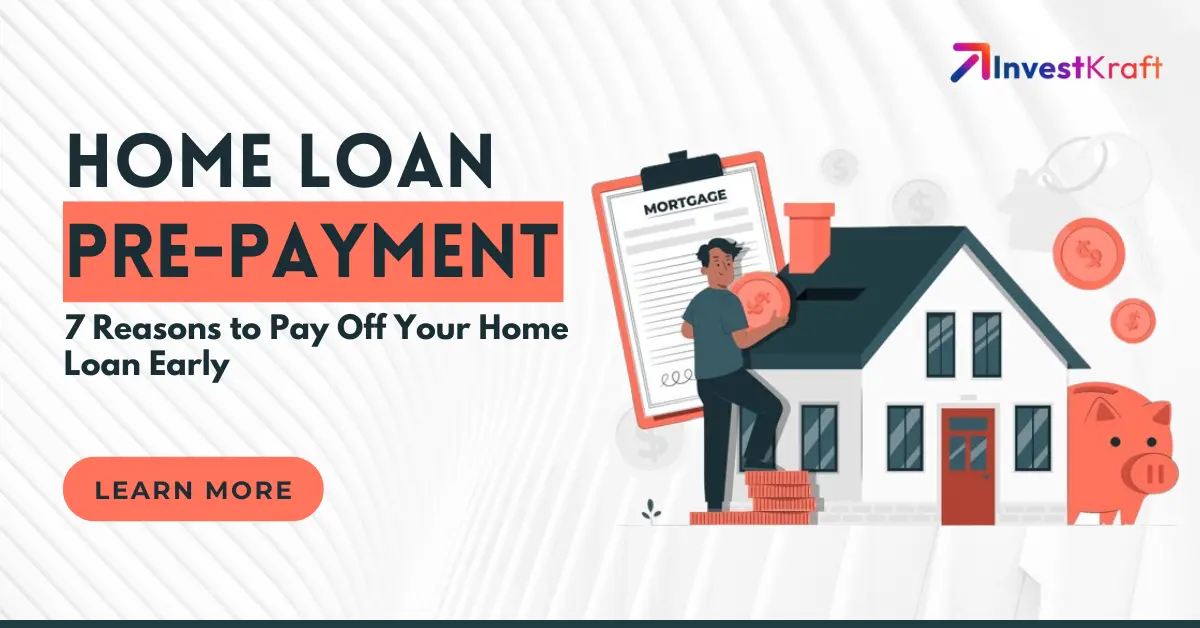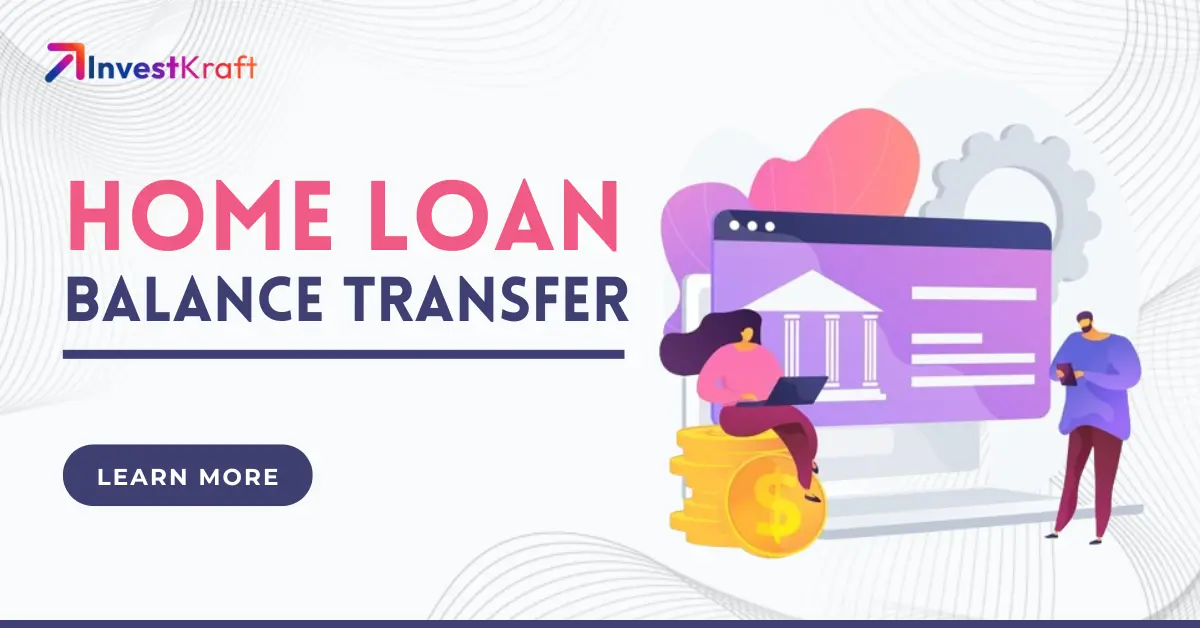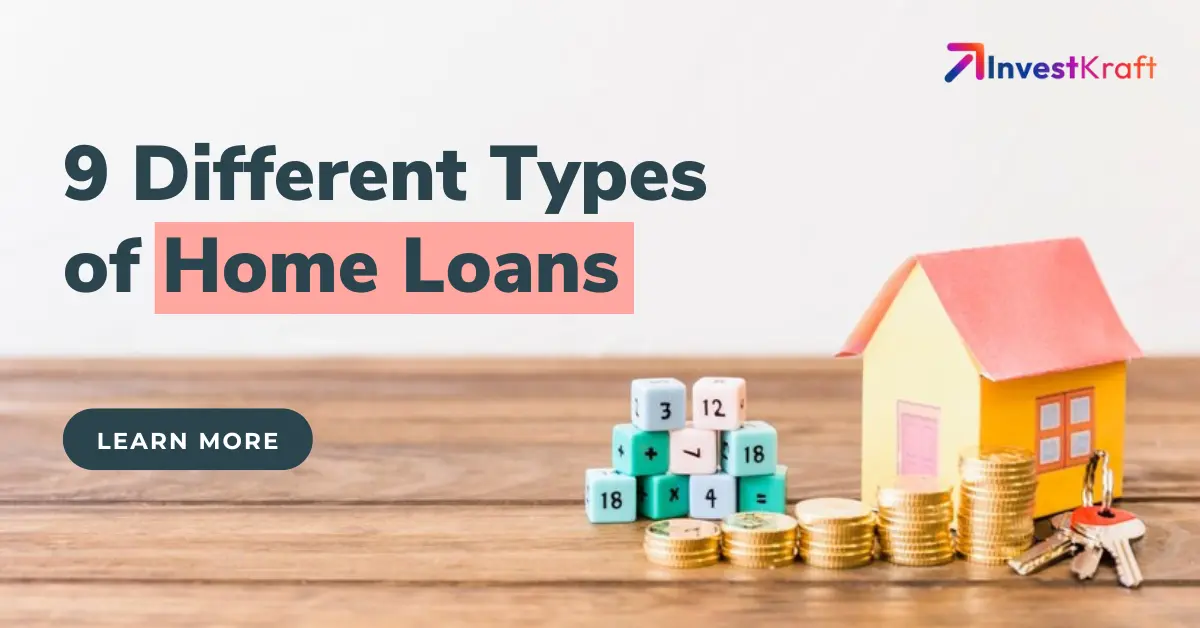7 Major Benefits of Closing A Home Loan Early

Lenders have ceased to charge foreclosure fees to clients with house loans that contain variable interest rates since the RBI regulation was implemented in April 2012. In the past, foreclosure costs amounted to 5% or more of the principal owed, making it costly to pay back your mortgage earlier than the term you had selected. Therefore, if you are considering paying off your house early since these fees are no longer applicable, pause to decide if this is the best course of action for you.
Moreover, keep in mind that if you decide to foreclose on your house loan, you can be assessed an additional 4% of the principal balance if your loan has a fixed rate of interest. In these circumstances, you might choose to transfer the remainder of your house loan to a lender, who provides benefits including a cheaper interest rate and the possibility to apply for a top-up loan.
So, if you have matured savings or an unexpected infusion of cash from the sale of an item, you might be thinking about foreclosure with options like a home loan balance transfer (HLBT). To determine if foreclosing on your home loan is the best course of action for you, consider the following factors before making your decision.
1. Determine Tax Benefits
You can deduct some expenses from your house loan under Sections 80C and 24 because of the principal and interest repayment, respectively. If the loan is foreclosed before its term is over, these deductions will be forfeited. Therefore, in the absence of a home loan, figure out your taxable income and check if you may claim additional savings under other provisions of the IT Act. Consider foreclosing on your house loan if there are alternative alternatives for you to lower your taxable income.
2. Interest Rate Savings
It's crucial to factor in the opportunity cost of the savings and actual savings. You would be better off using the cash flow you free up after paying off a house loan to support other life goals, like saving for your child's college tuition or providing for your spouse and yourself in a happy retirement.
Using the aforementioned example as a guide, you can invest an additional Rs 50,000 per month. Instead of paying the same amount every month for the next ten years, you could invest the same amount of Rs 60 lakhs and make Rs 1.16 crore if you invested it in a diversified/bluechip mutual fund that generated an average return of 12% through a systematic savings plan! You therefore have an opportunity cost of choosing between revenues of over a crore and an expense of 60 lakhs.
3. Lesser Credit Utilization
A house loan affects your credit score over time in addition to the money. Even a small EMI servicing error will negatively impact your credit report, and the risk remains until the debt is fully repaid. A mortgage also raises your credit utilization ratio, which is an important part of your credit report.
One benefit of paying off your house loan early is that it lowers your credit utilization ratio and appears as a credit report honor. For a healthy credit score, it's a good idea to maintain all EMIs—loans, credit card debt, etc.—between 30 and 40 percent of your monthly take-home pay.
4. Improved Eligibility
If a large mortgage accounts for a sizable portion of your credit utilization, it becomes more difficult to obtain additional loans, such as those for a car, schooling, company, or medical needs. It's only that lenders might want to reduce risk exposure and provide a much lower amount than you need. It doesn't mean you won't be qualified for another loan.
You might eventually need some need-based loans, thus lowering the amount might not be an option. Your eligibility for a loan is reinstated if you can pay it off early, just when you need it most.
5. Discover home equity
One of the earliest asset sectors for investment over generations has been real estate. Your home's worth increases in tandem with the price of real estate. But until you sell the residence, these benefits are still theoretical. You can choose a home equity loan or home equity line of credit (HELOC) if you want to benefit from the value your property has created even if you don't plan to sell it.
To put it simply, it's a credit line or loan secured by your home's current market worth. While home equity loan requirements vary among lenders, most typically approve loans up to 70–80% of the property's assessed value. Redirecting the funds to other investments with the potential for larger returns is the goal of having more credit.
Having a home equity line of credit (HELOC) has several benefits, including much larger loan eligibility and interest rates that are substantially lower than those of a credit card or personal loan. You are free to utilize the money any way you see fit, whether that means investing in other traditional assets, starting a business, or buying more real estate.
6. Complete Peace of Mind
Ensuring that your house is yours is one of the main advantages of paying off your loan early. A house loan represents a contractual commitment of decades. Financial setbacks can be caused by lost earning potential, accidents, injuries, or even catastrophic international events like the recent epidemic or war. Your home can be taken back if you don't make your EMI payments on time.
Paying off a house loan early is a big accomplishment. You can rest easy knowing that you can handle any other financial difficulties and safeguard the future of your family.
7. Better resource utilization
It's crucial to factor in the opportunity cost of the savings and actual savings. You would be better off using the cash flow you free up after paying off a house loan to support other life goals, like saving for your child's college tuition or providing for your spouse and yourself in a happy retirement.
Using the aforementioned example as a guide, you can invest an additional Rs 50,000 per month. Instead of paying the same amount every month for the next ten years, you could invest the same amount of Rs 60 lakhs and make Rs 1.16 crore if you invested it in a diversified/bluechip mutual fund that generated an average return of 12% through a systematic savings plan! As a result, you have an opportunity cost of choosing between spending 60 lakhs and making over a crore.
Setting aside money for a home loan demands discipline. The plan is to calculate a reasonable monthly excess and set it aside for house loan payback. Make an extra payment to the lender on a quarterly or half-yearly basis, and ensure that you receive a suitable acknowledgment for it. The repayment can be accelerated over time with additional lump sum profits like a work bonus, inheritance, revenues from another asset, etc.
FAQs
Q. Is pre-closing a home loan a good idea?
- When choosing to close a personal loan early, you should take your monthly costs and financial situation into account. If you can afford to pay off your debt early, you can choose to foreclose. It can increase your credit score, reduce interest payments, and free up cash flow. However, it is typically not a good idea to utilize all of your funds to pay off your loan early because unforeseen costs might crop up at any time and you may need to use your savings to cover those urgent bills.
Q. Does the pre-closure of a home affect your credit score?
Regarding a personal loan, the CIBIL Score is unaffected by foreclosure or repayments. Therefore, this will not have any impact of any kind on your credit score. Your loan will be listed on your credit record as "closed" once you have made all the required payments.
Q. What is the top-most benefit of home loan prepayment?
- A home loan is a long-term obligation with high-interest rates. The largest benefit or motivation for paying off home loans early is frequently thought to be the savings on interest payments.
Related Posts;
- Tax Benefits on a Home Loan For an Under-Construction Property
- Get a Home Loan without Income Documents
- 7 Benefits Of Taking Home Loan
- Complete Guide to Home Loans in India
- Top 5 Benefits Of Refinancing Home Loan
- Get a Home Loan With a Low CIBIL Score
- Top 5 Home Loan Benefits for Wome
Verify Phone Number
Related Post

A Comprehensive Guide to Home Loan Eligibility for Salaried Individuals in 2024
When purchasing a new home, the costs involved can be quite high, necessitating the need for a home...
Read more...
Top 10 Best Banks for Home Loans
Looking to buy your first home? The process can be thrilling, tiring and a bit scary, especially in...
Read more...
10 Factors To Consider While Choosing Home Loan Balance Transfer
We have different needs and financial requirements in life for which we often apply for loans. Among...
Read more...
Home Loan Balance Transfer: Your Complete Guide to Saving on Interest Rates
Are you feeling the weight of your home loan stretching out over the years? Whether you're alrea...
Read more...
Role of Credit History in Home Loan Approval and Interest Rates
A house-buying endeavor requires a significant investment from the lender as well as the buyer. As a...
Read more...
9 Different Types of Home Loans Available in India 2024
Everyone wants to own a home at some point in their lives. Everyone aspires to own a home since it i...
Read more...
10 Tips for First-time Home Buyers in India 2024
Buying a home is not just one of the biggest but also complex decisions in one’s life. This is...
Read more...
7 Major Benefits of Closing A Home Loan Early
Lenders have ceased to charge foreclosure fees to clients with house loans that contain variable int...
Read more...
Top 5 Home Loan Benefits for Women in India 2024
For many of us, purchasing a home is an emotional and once-in-a-lifetime choice. We borrow money, sp...
Read more...
Guide To Tax Benefits on a Home Loan For an Under Construction Property
Tax Benefits on a Home Loan for an Under Construction Property, Over the past few years, there...
Read more...Reach out to our Experts if you have any Doubts
Like the best things in life, Consultations @InvestKraft are free
Drop a Mail or give us a Missed Call & Begin your Investment Journey here






